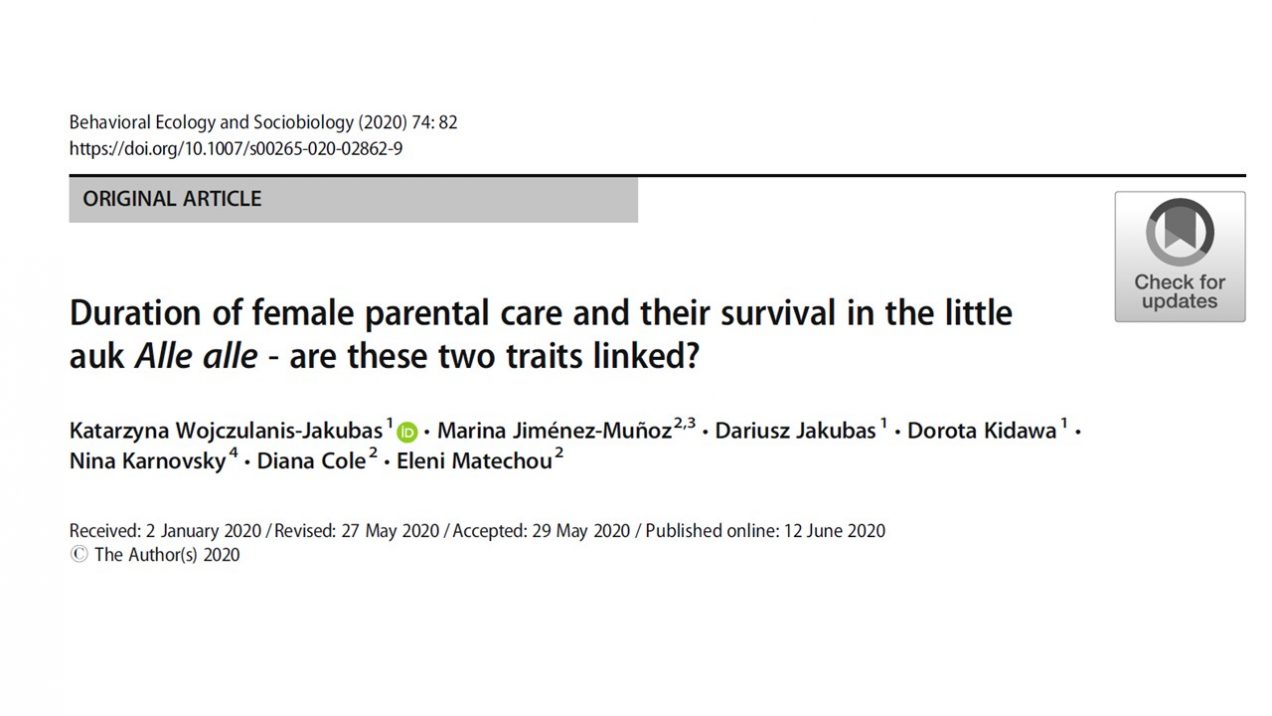The paper: Duration of female parental care and their survival in the little auk Alle alle – are these two traits linked? by: Katarzyna Wojczulanis-Jakubas, Marina Jiménez-Muñoz, Dariusz Jakubas, Dorota Kidawa, Nina Karnovsky, Diana Cole and Eleni Matechou, has just been published in Behavioral Ecology and Sociobiology.
Abstract:
Desertion of offspring before its independence by one of the parents is observed in a number of avian species with bi-parental care but reasons for this strategy are not fully understood. This behaviour is particularly intriguing in species where bi-parental care is crucial to raise the brood successfully. Here, we focus on the little auk, Alle alle, a small seabird with intensive bi-parental care, where the female deserts the brood at the end of the chick rearing period. The little auk example is interesting as most hypotheses to explain desertion of the brood by females (e.g. “re-mating hypothesis”, “body condition hypothesis”) have been rejected for this species. Here, we analysed a possible relationship between the duration of female parental care over the chick and her chances to survive to the next breeding season. We performed the study in two breeding colonies on Spitsbergen with different foraging conditions – more favourable in Hornsund and less favourable in Magdalenefjorden. We predicted that in Hornsund females would stay for shorter periods of time with the brood and would have higher survival rates in comparison with birds from Magdalenefjorden. We found that indeed in less favourable conditions of Magdalenefjorden, females stay longer with the brood than in the more favourable conditions of Hornsund. Moreover, female survival was negatively affected by the length of stay in the brood. Nevertheless, duration of female parental care over the chick was not related to their parental efforts, earlier in the chick rearing period, and survival of males and females was similar. Thus, although females brood desertion and winter survival are linked, the relationship is not straightforward.

